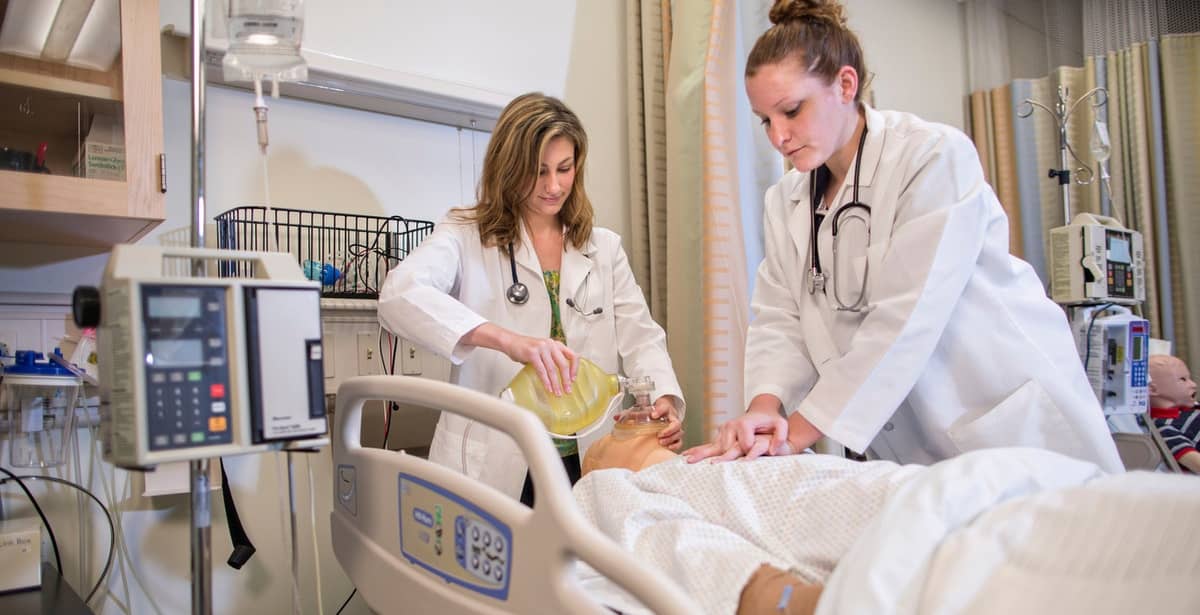Providing an all-rounded approach to patient care can help drive a patient’s healing process toward success. Holistic care is an approach to healthcare that considers all aspects of a patient’s well-being. It emphasizes treating the individual as a whole rather than just their physical symptoms.
It encompasses physical health but also mental and emotional health, spiritual well-being, lifestyle factors, and social connections. It involves understanding how these different areas interact to provide comprehensive patient support.
Nurses are often on the front lines of providing holistic care to those in need and play a crucial role in giving comprehensive and holistic care to their patients. By embracing a holistic viewpoint, nurses can better tailor their approach to delivering an effective treatment and fulfilling each patient’s unique needs. Therefore, we will discuss six ways nurses can provide holistic care below.
Education
To provide holistic care, nurses should first understand what that means and educate themselves accordingly. Nurses should take the time to attend educational seminars, conferences, and networking events to gain a more comprehensive understanding of how they can provide care from a holistic perspective. These training events allow nurses to stay abreast of advances in the industry and broaden their knowledge.
Modern healthcare has many changes, and staying updated on the latest trends will enable nurses to provide the best patient care possible. For example, Roy’s adaptation model of nursing is widely used in nursing care, employing a holistic framework to heal and treat patients successfully. It enables nurses to identify areas for improvement for developing comprehensive plans of action that consider every aspect of an individual’s needs, including mental, emotional, and physical health concerns.
Thus, nurses must get trained and educated so they do not miss out on new models and techniques used in healthcare.
Be Friendly
Holistic care involves more than just caring for a patient’s physical needs. Instead, nurses must also make their patients feel safe with them and be friendly and approachable. They can do small acts by smiling warmly at the patient, asking about their lives, taking the time to learn their name, and making eye contact during conversation.
Providing comfort through physical touch can also show a sense of gentleness and warmth that helps improve overall health outcomes. Not only will this make the patients feel comfortable with them, but knowing their background, medical history, lifestyle habits, and other aspects of their life will help gain insight into how best to treat them holistically. By using these simple acts of kindness combined with skilled medical care, nurses can ensure that each patient receives the best holistic care.
Understand Cultures
Nurses can provide holistic, culturally competent care to their patients by striving to understand the culture of those they are caring for. It requires nurses to be open-minded and actively seek ways to learn about different cultures to gain a more thorough understanding of diverse beliefs and traditions.
They should strive to treat all patients equally, regardless of background or identity, recognizing that each patient is unique and deserves dignity and compassion. Different cultures may have different beliefs regarding healthcare practices. Thus, understanding them can help improve the delivery of services while ensuring respect towards diverse cultural backgrounds.
Having this knowledge also provides opportunities for personalized discussions and treatments where necessary. Understanding cultural issues that can adversely affect health will help inform nurses’ practices, allowing them to deliver care ethically that honors their patients’ values and needs.
Offer Emotional Support
Beyond just being friendly, nurses should also demonstrate genuine care for their patients by listening to them with empathy and compassion. It will allow nurses to understand better what is bothering or worrying them so that they can be more supportive and offer tailored advice or treatment options where necessary.
Meanwhile, it is also essential to acknowledge the feelings of stress or anxiety that many individuals experience when receiving medical treatment. It is imperative, especially when dealing with chronic conditions or making major lifestyle changes due to illness or injury.
Providing reassurance and emotional support during these times helps promote healing by increasing trust between patient and practitioner, which encourages compliance with recommended treatment plans and an improved attitude towards change overall.
Establishing trust between nurse and patient will also help create an atmosphere of open communication between them. It will allow patients to feel comfortable discussing any issues involving physical or mental illness without hesitation or fear of being judged or rejected.
Integrate Complementary Therapies
Incorporating complementary therapies into treatment plans is another excellent way for nurses to provide well-rounded care options that may even work better than traditional Western-based treatments. Exploring non-conventional treatments or alternative therapies such as acupuncture, massage therapy, aromatherapy, and homeopathy can be beneficial when looking at pain management options or coping with stress-related illnesses.
They can also promote self-care practices, such as relaxation techniques and nutrition counseling. A multi-dimensional approach facilitates patient empowerment by providing different options for supporting their health.
The utilization of these alternative therapies can also improve physical and emotional well-being throughout the entire course of treatment and beyond. These are good techniques to try without having to turn directly towards medications as first-line treatments all the time, which may have adverse side effects associated with them if taken long-term.
Concluding Remarks
Nursing is a vital and complex profession that requires knowledge, compassion, and skill. However, nurses must provide a holistic approach to patient care that emphasizes a patient’s physical, psychological, social, and spiritual health. They must be creative in their approaches to patient care and strive to provide a safe environment for patients and colleagues.
They can do so by educating themselves about the latest advancements in modern healthcare, understanding and supporting their patients, and going the extra step to ensure their patients feel safe with them. By taking a holistic approach to providing care, nurses can better meet every patient’s needs by offering tailored treatments designed to improve overall health outcomes.


 Home
Home









